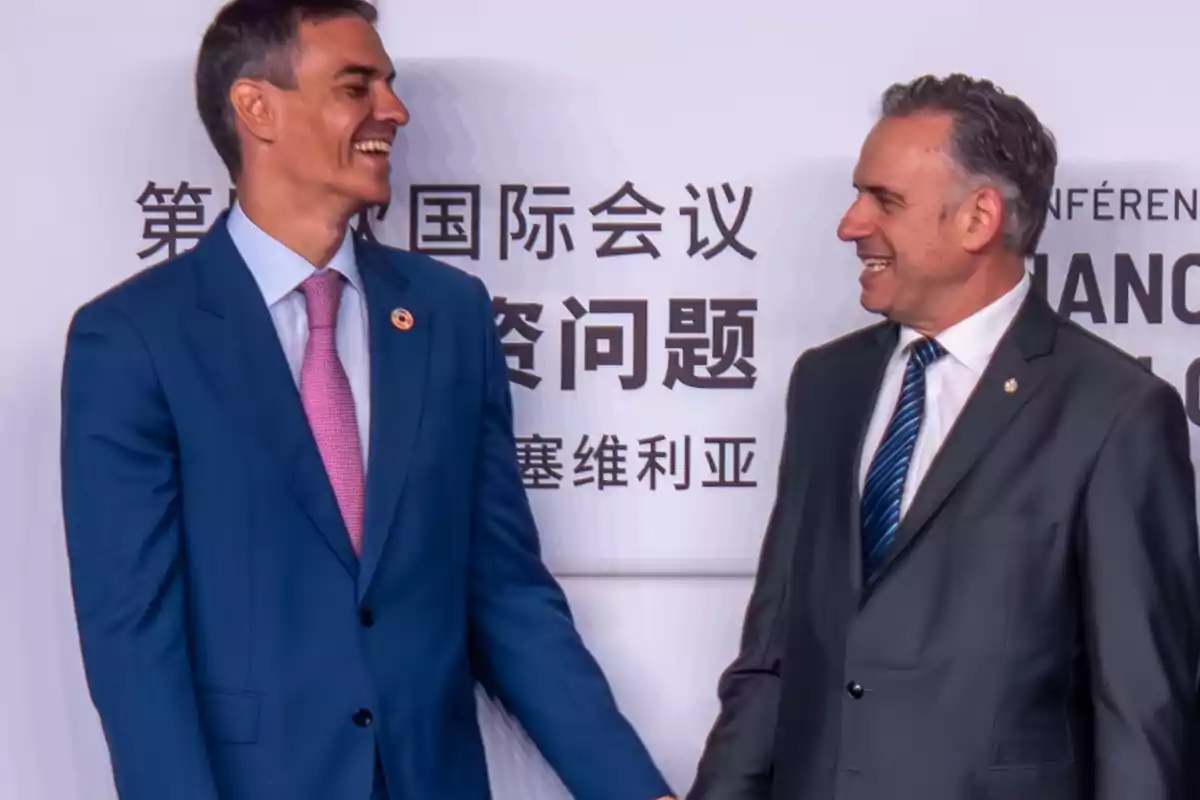
Uruguay and Spain will sign the 'Country Partnership 2025–2029'
A pact among globalists of the worst kind
An alliance with corrupt socialism
This Tuesday, Yamandú Orsi will receive the main person responsible for Spain's decline: Pedro Sánchez. They will sign the so-called "País Alliance 2025–2029," a declaration of total alignment with the United Nations 2030 Agenda and the interests of international progressivism.
Discredited on his own continent, Pedro Sánchez seeks international relevance by aligning himself with Latin American progressivism.
You may also be interested in...
With a Europe on the brink of collapse, desperately calling for the expulsion of the socialist cancer, the Spanish president is trying to reinvent himself as a global leader by articulating a ridiculous transatlantic progressive axis.
The signing will take place during Sánchez's South American tour, which began in Santiago, Chile at the "Justice Always" event, the summit that brought together the most corrupt left in Ibero-America. After his visit to Uruguay, Sánchez will travel to Paraguay to meet with President Santiago Peña in Asunción.
Technocratic interventionism
The agreement between Uruguay and Spain has been in the works for months, driven by the Uruguayan Agency for International Cooperation (AUCI) and the Spanish Agency for International Development Cooperation (Aecid).

In May, workshops were held in Montevideo with dozens of actors from the public, private, and social sectors. The central topics: "democratic" governance, "just" energy transition, and digital transformation with "equity".
You may also be interested in...
Behind these terms, a model of technocratic interventionism is being consolidated, increasingly distant from the real needs of citizens and closer to the political laboratory of Brussels or New York.
Globalist social engineering
The "triple transition" promoted by the agreement—digital, ecological, and social—is designed to impose globalist social engineering.
Inclusive education, mental health with a rights-based approach, cultural diversity as a "driver of cohesion," and gender equality are among the priorities, all under the label of "methodological innovation" and "institutional commitment."
More ideological impositions ranging from school indoctrination to cultural relativism, including gender ideology and uncontrolled migration.
Everything that has caused the worst crisis in Spain's recent history, Orsi intends to replicate in Uruguay.
The national essence is at risk
One of the pillars of the so-called "triple transition" is the migration approach inspired by the disastrous Spanish model. The agreement between Uruguay and Spain will propose a total opening, under the umbrella of "inclusion" and "cultural diversity."

This raises all the alarms, given that Uruguay is experiencing a serious demographic crisis. The National Institute of Statistics itself projects that, by 2070, the country could shrink to just three million inhabitants. In this scenario, replicating European migration policies represents an existential threat to our country.
You may also be interested in...
Spain has already gone down that path and today faces a serious national identity crisis, growing social conflicts, and an overloaded public system.
To this is added that Sánchez's government has just put out to tender a campaign of almost half a million euros to "combat disinformation" about irregular immigration, under the slogan "Migration, source of wealth." A state propaganda effort that tries to cover up the effects of a failed model.
A historic mistake for Uruguay
Aligning with Pedro Sánchez—architect of the economic, moral, and social decline of a once prosperous Spain—is a suicidal gamble.
Orsi will tie Uruguay's fate to the decadent project of the corrupt Pedro Sánchez. The most serious aspect is that he will do so without parliamentary debate, without citizen consultation, and without accountability.
The Frente Amplio government once again, without hesitation, places Uruguay as a platform for the globalist plans of international progressivism.
Once again, thanks to the management of the left, this agreement will be remembered as one of the most irresponsible decisions in Uruguayan foreign policy.
More posts: